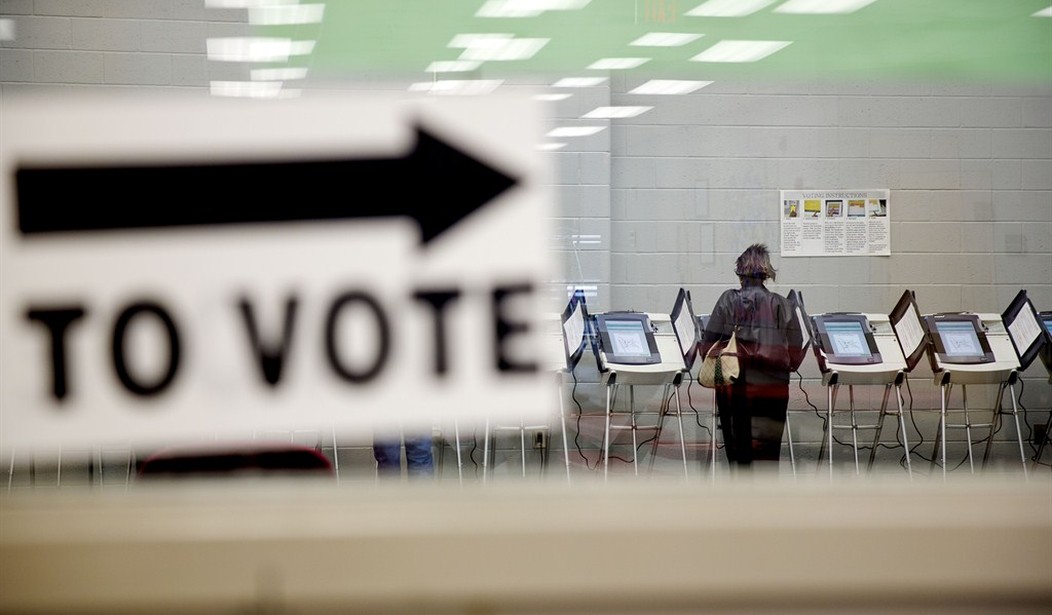The midterm elections are less than six months away, and Republicans still can't agree among themselves on what it will take to win.
The latest debate among party insiders is whether GOP House and Senate candidates should produce a document like the Contract With America that tells voters what to expect if Republicans win full control of Congress. But the fact that there is a debate at all indicates that the race is not shaping up as Republicans envisioned months ago.
Much of the anxiety concerns Obamacare. The six months between October and March saw the disastrous rollout of the exchanges, steep increases in premiums and deductibles for millions of Americans, the imposition of the individual mandate, higher taxes and other troublesome features of the Democrats' national health care scheme. Republicans saw public unhappiness as political opportunity.
But now that seems to have hit a plateau. Yes, more jarring changes are coming -- the employer mandate, the full imposition of minimum coverage requirements, and others. But President Obama has delayed several of those changes until after this November's elections. That has thrown a wrench into earlier Republican plans to exploit public discontent all the way until the election.
"There are no big implementation events to occur that could change the current equilibrium before November," says a well-connected Republican strategist. "So there is this sense that Obamacare has moved everybody that it's going to move, and that's not enough."
In addition, some GOP insiders are sensing that by November -- when the Obamacare exchanges have been up for more than a year -- the public will not see a Republican pledge to repeal as the answer to its unhappiness with the health care system.
Recommended
"One thing you're beginning to see in surveys is the sense that we're so far down this path that repeal is not realistic any more," says the GOP strategist. "Clearly, they disagree with the direction of the health care system, but the idea that you can stop all this and go back to where we were before just seems unrealistic to a growing chunk of the population." A recent GOP survey found that a plurality of voters agreed with the statement, "The system has been changed too structurally that it is not possible to go back to the way it was before."
Put those concerns together, and you have the growing Republican feeling that Obamacare will not be as much of a driving motivation for voters as they had earlier hoped. And that's behind the talk about a new campaign pledge.
Most proponents don't want a literal version of the old Contract With America, which was a huge success for House Republicans in 1994 but devoted a lot of attention to internal House reforms as well as the extensive legislation GOP lawmakers promised to pass. After many re-iterations of the contract over the years, some GOP strategists believe another could look like a wish list that voters would promptly ignore.
Instead, some Republicans are thinking about focusing on two or three policy areas in which they will pledge major legislation to boost America's economy.
Three items under discussion are energy, regulation and tax reform. The energy part is relatively easy; Republicans support a variety of ways for America to capitalize on the revolution in oil and gas recovery, while Democrats seem determined to slow it all down.
Tax reform is more difficult, since Republicans do not agree among themselves on a big plan. But they could showcase individual measures, like ways to bring home the billions in cash that U.S. corporations have overseas.
As far as regulation is concerned, there is a concern that voters have heard the GOP's general anti-regulatory position over and over. Instead, Republicans might focus on one or two undeniably counterproductive economic restrictions as a symbol for Obama's across-the-board increase in regulations.
Health care remains a big question mark. Republicans have famously not been able to unite behind a single Obamacare alternative, and it doesn't look like they'll be able to do so anytime soon. Beyond supporting repeal -- nearly all Republicans still do -- it's hard to see what the GOP positive agenda will be.
Not all Republicans are on board for some sort of party pledge. While some think a contract-style agenda could put them over the top in close races, others "think the existence of such an agenda is just a recipe for further divisions down the road -- you don't want to over-promise and create backlash," says one Senate Republican source.
Most GOP lawmakers do agree on one thing: They hate "Republicans are divided" stories in the press. But the fact is, November is not that far away, and the GOP hasn't fully settled on how to run.

























Join the conversation as a VIP Member